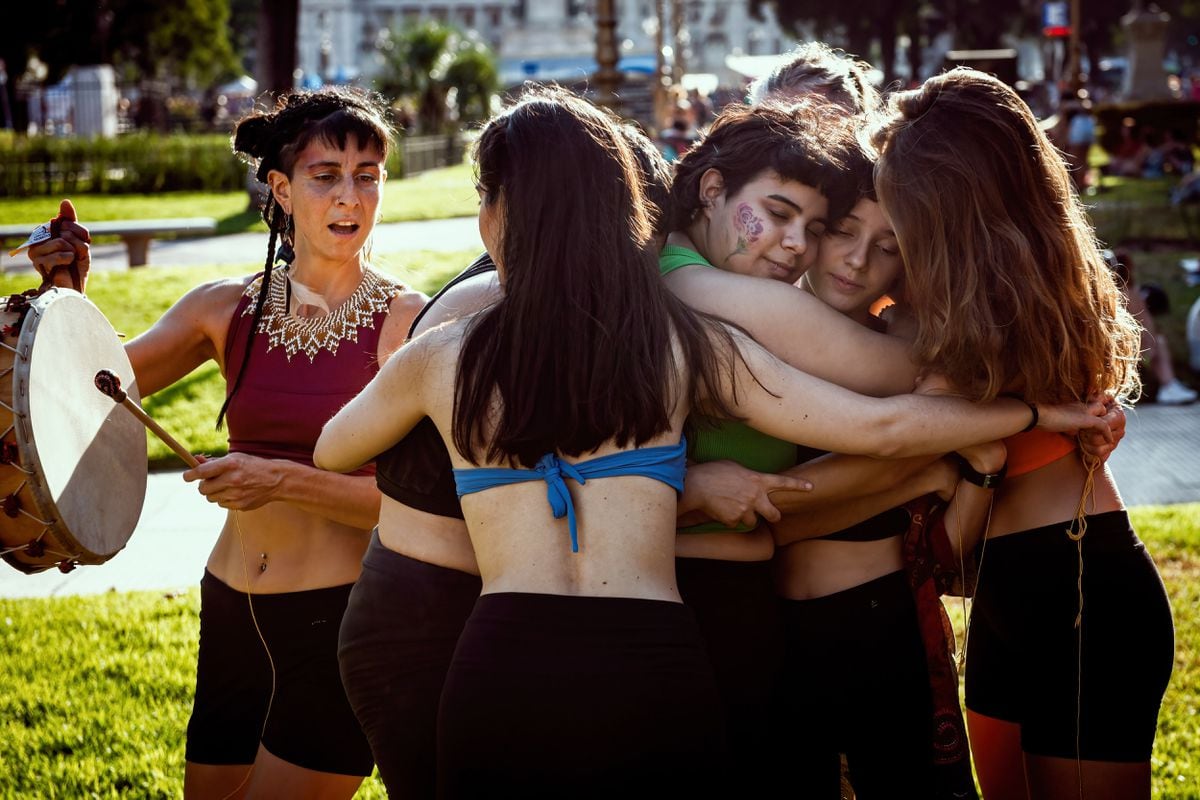If we do not reverse current trends, 20 million women and girls in Latin America and the Caribbean will live in extreme poverty by 2030, below the international threshold of 1.90 dollars (1.75 euros) a day, according to the latest reports from the UN.
We are alarmed to know that food insecurity affects them disproportionately in the region, and the climate crisis promises to deepen this impact in the future.
In 2022, 41.8% of women in the region experienced some degree of food insecurity, compared to 32.7% of men.
One of the main obstacles to gender equality in 2030 is the lack of financing: so far, barely 1% of Official Development Assistance (ODA), putting its long-term operability at risk.
It is crucial to support women's and feminist organizations and networks, as they represent a fundamental voice in promoting gender equality.
Furthermore, they often reach where the State has not yet reached and allow progress at the community level and in national, regional and international regulatory frameworks, contributing through research, innovation and advocacy.
Prioritizing equality in public budgets and the financing of institutions and policies in this sense is a political decision that materializes the will to move towards a more egalitarian society.
When a woman is burdened with all the care tasks involved, the first thing she has is time poverty.
There is no mystery: when there are resources and political vision there are results.
Therefore, we urge governments to take measures at the regional, national and local levels that mean progress towards decent work, the reduction of poverty and inequalities and sustainable development with women at the center.
Investment and public spending must be increased to promote the creation of decent jobs with women and young generations at the center of the responses in the science and technology sectors, since women are still a minority of those They train in Information and Communication Technologies (ICT).
In some countries in the region they do not even reach 20%.
It is necessary to mobilize resources to promote access to sustainable credit for innovation and the generation of livelihoods, since many women still do not have their own income.
25.3% of women over 25 years of age are in this situation, and without their own income it is very difficult to have physical, economic or political autonomy.
The transition towards a society of care and sustainable development is possible and necessary.
The social redistribution of care, through comprehensive policies and systems, is essential to reduce poverty and inequality, generating employment and empowering women.
When a woman is burdened with all the tasks involved in caring, the first thing she has is time poverty.
She lacks time to develop, to study, to train, to work for pay, to improve her conditions, to defend her labor rights... and this undoubtedly results in greater monetary poverty.
The more economic poverty, the greater the burden of care.
The more discrimination, the more difficult it is to advance the autonomy of women, so that they live free of violence, so that they can leave relationships and spaces that oppress or discriminate against them, often from homes that are an unsafe environment.
In the context of the Commission on the Status of Women (CSW68) taking place in New York City from March 11 to 22, Latin American countries and countries committed to gender equality throughout the world will meet to advance intergovernmental agreements on poverty and gender equality.
To eliminate the growing feminization of poverty and inequality suffered by women in the region, it will be essential to recognize the discrimination that indigenous, rural, Afro-descendant, disabled and migrant women still experience.
It will also be necessary to reflect on public policies and innovative solutions that make it possible to advance and improve the quality of life of all women, and especially the most discriminated against in developing countries, and in insular countries and islands such as the Caribbean that face to even greater sustainability challenges.
María Noel Vaeza is regional director of UN Women for the Americas and the Caribbean.
You can follow
Planeta Futuro
on
X
,
,
and
TikTok
and subscribe
to our newsletter
here
.

